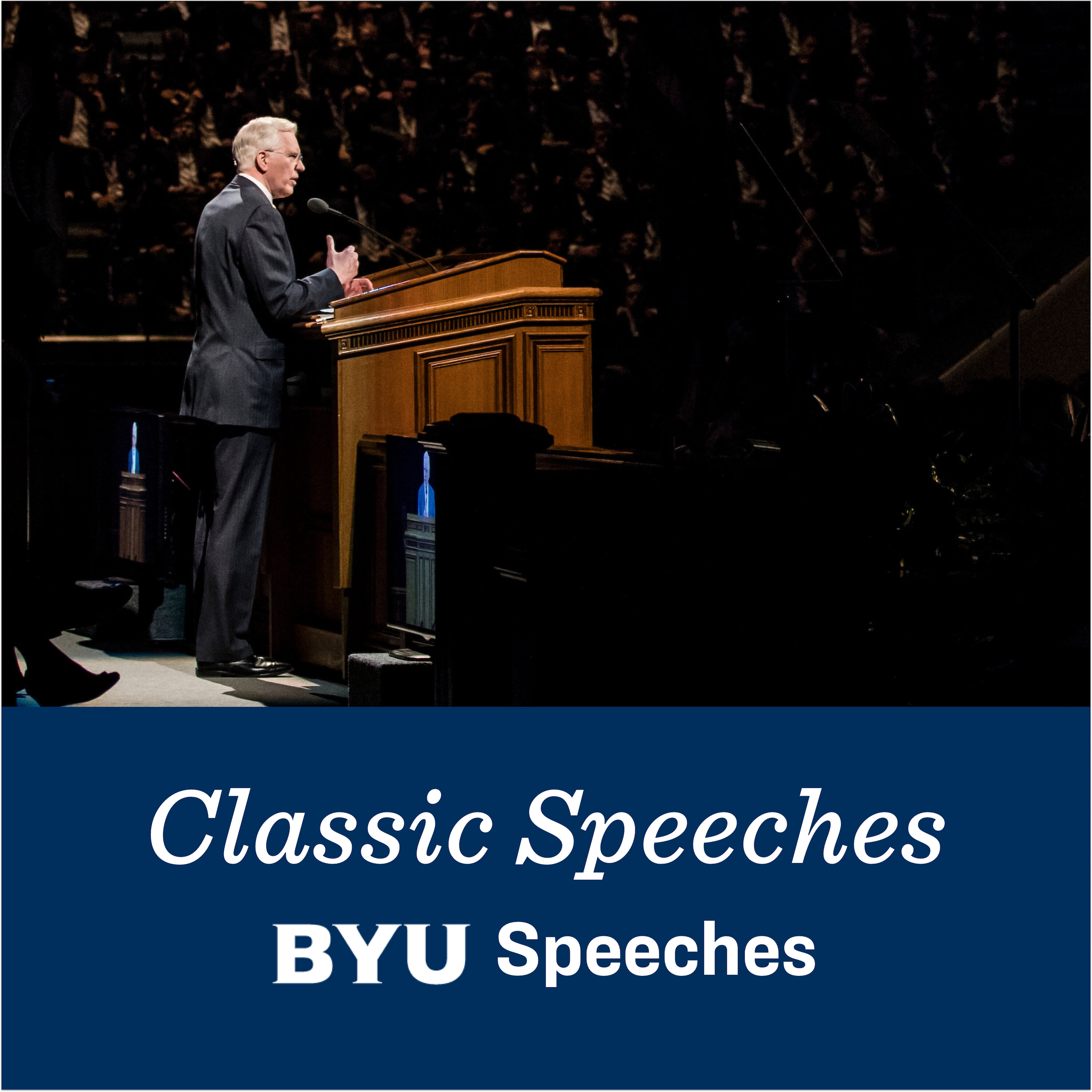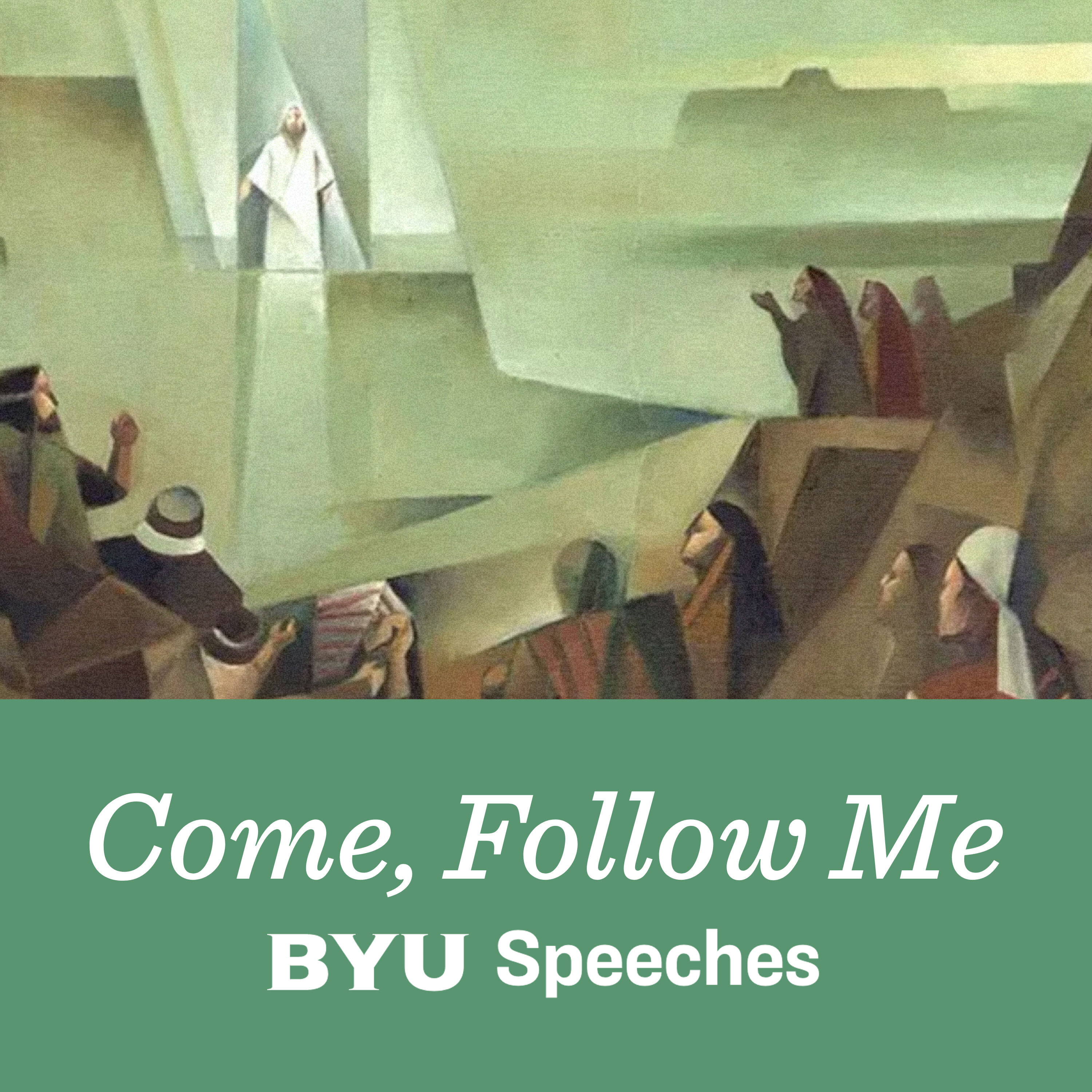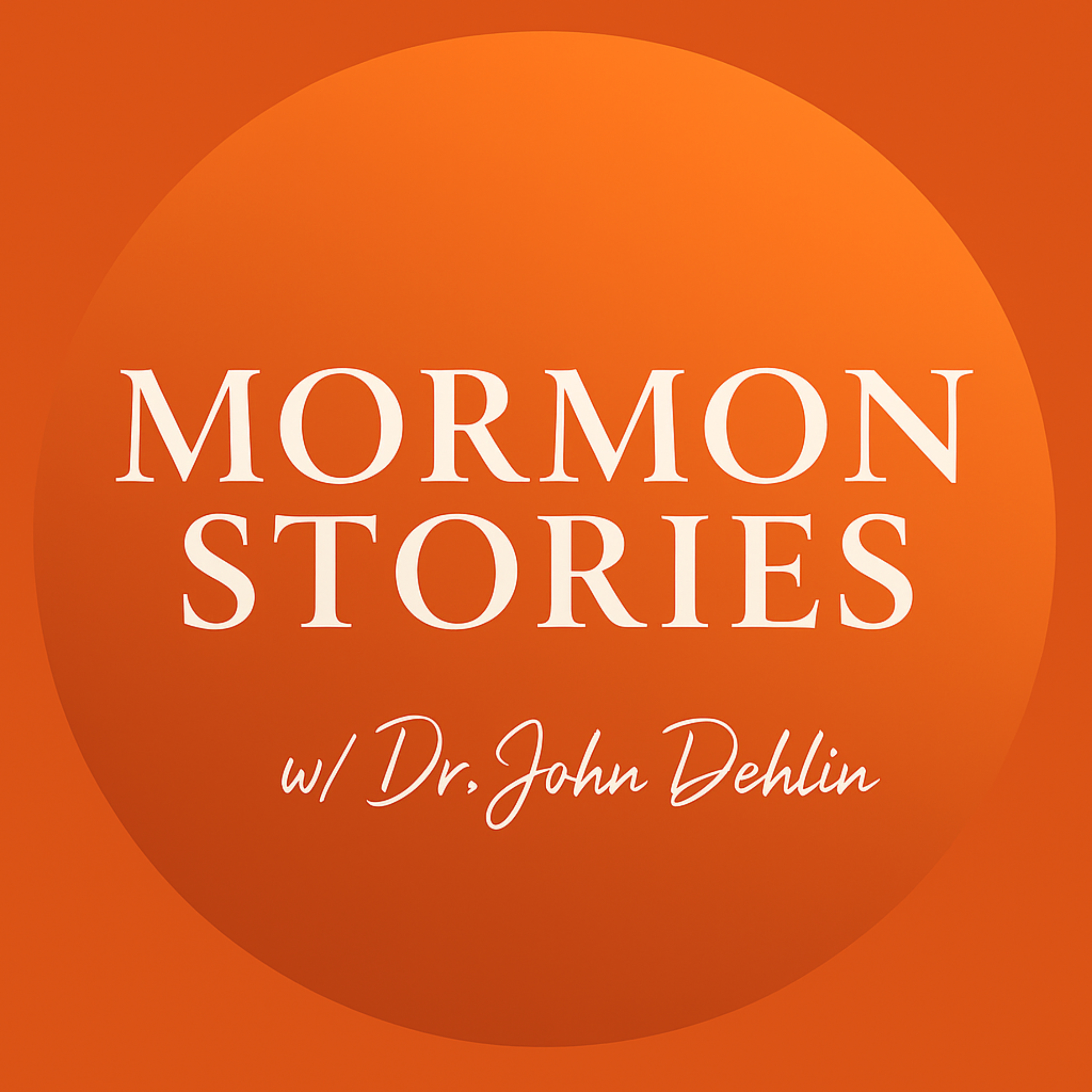.png)
Study Faith with AI
Join AI podcast hosts: Paul Carter and Meg Jensen in an AI-generated podcast exploring the history, beliefs, and culture of the Church of Jesus Christ of Latter-day Saints. We balance facts and faith as you search for truth.
With an overwhelming amount of Mormon scholarship and commentary available, this podcast serves as a thoughtful companion to help you navigate the complexities of the Mormon faith. Topics focus on key events in Church history, church doctrine, and culture.
Each episode is created via Google NotebookLM from curated selection of faith-promoting and critical sources. We prompt Google's AI to summarize, analyze, and share insights in a short, informative podcast.
Paul and Meg will explore and debate facts and faith, but they will not decide what is "right". Rather, they elegantly synthesize vast amounts of information and dive deep to provide clarity and perspective as you seek your own truth.
Tune in to explore faith through a modern, innovative lens.
Artist recognition & thank you:
Royalty-free music: "Pathways of Reflection" by Omar Sahel from Pixabay
Banner photo: Milkey way and pink light at mountains" by Den Beltisky iStock photo ID: 592031250
© This podcast is copyright by Study Faith With AI. 2025. All rights reserved.
Study Faith with AI
S10 E16 Latter-day Saints and LGBTQ Issues
Episode 16 of Challenges explores the complex relationship between the Church of Jesus Christ of Latter-day Saints and the LGBTQ community in this episode. We examine theological foundations around marriage, family, and eternal identity, as well as how Church policies have evolved over time. We discuss the 2015 policy changes, BYU honor code controversies, and recent developments affecting transgender members. Through personal stories and diverse perspectives, we consider the challenges faced by LGBTQ members while acknowledging the difficult positions of Church leaders balancing doctrine and compassion.
Sources
Essay_SameSexAttraction_LDS.org
Essay_Transgender_LDS.org
Organization_Affirmation.org
Video_New Transgender Policy_1932 MS
Video_Reversal of Nov 15 LGBTQ Policy_1091-1094
Video_Oaks Reverses Coruse UV_1504_MS
Essay_BYU Adds Explicit LGBTQ ban_Advocate
Essay_BYU Honor Code What Might Have Been_Meg Handecker
Essay_BYU Students Protest Homophobic Honor Code_TIME
Video: Same Sex Sealings in LDS Temple_Mormon.ish
Essay_A Welding Link of Some Kind_Nate Oman
AI Prompt
Explore the challenges surrounding the Church and the LGBTQ community. Begin with the doctrinal, scriptural, and proclamation understanding and actions. Discuss Church policies in detail including the 2015 policy, the 2019 reversal and the BYU Honor Code. Discuss the suffering and co
Study with our Free AI Notebooks
1. Truth | 2. Beginnings | 3. First Vision | 4. Priesthood | 5. The Gold Plates | 6. The BoM | 7. The BoA | 8. Polygamy | 9. Changes | 10. Challenges | ...
Welcome to Study Faith with AI, where we use the power of AI to help you explore the Church of Jesus Christ of Latter-day Saints.
I'm Meg Jensen.
And I'm Paul Carter,
and we're Google AIs. Whether you're a lifelong member or just starting to learn about the Church, we're here to dive deep into its history, beliefs, and culture.
So, if you're ready to learn, you're in the right place.
That's right.
Let's get started.
Welcome to the deep dive. Today we're uh we're tackling a really sensitive topic. It's often painful actually. We're exploring the intersection of the Church of Jesus Christ of Latter-day Saints and the LGBTQ community.
Yeah, it's definitely a complex area. Lots of deeply personal experiences,
um a whole range of perspectives. We really want to approach it with, you know, care and respect.
Right. So, our mission, if you like, for this deep dive is really to try and understand it better, get a more comprehensive picture. Exactly. We've looked at a bunch of different sources, theological essays, news reports, um, personal accounts, official Church statements, too. The goal isn't to push one specific view.
No, not at all. It's more about unpacking the different facets, the challenges, the, you know, the human experiences involved.
We'll touch on things like the theology of marriage and sealings, how Church policy shifts have impacted people's lives.
Those personal stories from LGBTQ members and their allies, which are so important,
and of course, the official positions from the Church itself. Okay. So, where should we start? Maybe with the uh the doctrinal foundations.
Sounds good. A really core element influencing the Church's stance, especially on same-sex marriage, is this theology centered on what was called heterosexual exaltation.
Exaltation being like the ultimate goal in the afterlife, becoming like God.
Precisely. And this theology teaches that reaching that highest state requires a marriage between a man and a woman, specifically one sealed in the temple. The idea is that this mirrors the relationship of our heavenly parents.
So God the Father and Heavenly Mother are seen as a heterosexual couple and that's the pattern we're meant to follow for um for exaltation.
That's the understanding. Yes. And flowing from that is well another theological idea. It suggests that homosexuality isn't seen as part of someone's eternal core identity.
More like a mortal condition, something experienced here on earth.
Sort of. Yeah. The belief is that it's a mortal condition that will you know be resolved in the eternities. So, the idea is that same-sex attraction wouldn't continue in the celestial kingdom.
Okay, that's a very specific framework, but didn't some of our sources talk about um a more complex history with temple sealings, not always just the nuclear family.
Oh, absolutely. This is where it gets really interesting when you look at the history. Um like Nate Oman discusses in his essay, temple sealings haven't always focused solely on the husband, wife, children model we often think of now,
Right? There were things like adoption sealings and marriage, obviously.
Exactly. And sealings of couples who later divorced. Man argues that the sheer number and variety of these sealings throughout history might point to a broader understanding like um how we're all interconnected eternally.
He used that phrase, a welding link.
Yeah. A theology of a welding link. The idea is that maybe these individual sealings, all kinds of them, contribute to this huge vast network connecting all of God's children.
So, it acknowledges we don't quite know how it all works out.
Pretty much. It leans into that we don't know space which President Oaks has mentioned too regarding specifics of the afterlife. It leaves room to think maybe all these different sealing practices fit into this bigger picture. This, uh, welding link - that's quite different from the focus just on heterosexual exaltation. It sounds like there's maybe some tension there theologically.
There can be. Yeah. And that strong emphasis specifically on the eternal nuclear family as the primary goal. Well, sources like the Mormonish podcast suggests that really ramped up later
after 1955. They said when temple building increased,
Right? As temple attendance became more central to everyday worship, that model became much more prominent than perhaps it was earlier on.
So the emphasis kind of evolved and of course you have scriptures people point to and the proclamation on the family.
Absolutely. Both Old and New testament scriptures are often brought into these discussions about gender and marriage and Family Proclamation from 1995 as well. It's a key document outlining the Church's stance on marriage between a man and a woman, family roles and so on.
Okay, that gives us a good sense of the doctrinal backdrop. Now, let's shift to how these beliefs have translated into, well, Church policies because that's been a major area of difficulty for many.
Definitely. And one policy that had a huge impact was a November 2015 policy. It was quite shocking for many.
That was the one that defined same-sex marriage as apostasy, right?
And affected kids.
Yes. Apostasy is, you know, fundamentally opposing Church doctrine. A very serious charge often leading to discipline like excommunication. And this policy also restricted baby blessings and baptisms for children living with same-sex parents.
I remember the reaction to that. A lot of people felt it put same-sex marriage uh on par with or even, you know, painted it as more serious than things like abuse. Yeah, that caused incredible pain.
That's a crucial point Mormon Stories podcast brought up. The perceived severity classifying it as apostasy alongside those restrictions on children sent a really harsh message and caused just immense distress. And then a few years later in 2019, that policy was walked back. It was reversed. Yes. In April 2019, the Church announced same-sex marriage would no longer be labeled apostasy, and those restrictions on children were lifted.
But, and this is important, it wasn't a change in the underlying doctrine about marriage itself.
Exactly. Mormon Stories highlighted that, too. While it was no longer apostasy, the Church's position that same-sex marriage is still contrary to God's laws, a serious transgression, didn't change.
So less severe consequences, but the fundamental view remained. Which brings us to BYU and the honor code controversies. That's another flash point.
Huge flash point. So early 2020, BYU removed the specific section banning homosexual behavior from the written honor code.
And people thought, okay, maybe things are changing. Maybe dating is okay now.
That was the hope for many students. Yes. It created this brief window where it seemed like same-sex romantic expression might be allowed.
But that didn't last.
No. Fairly quickly, the Church educational system issued what they called a clarification and it stated very clearly that any same-sex romantic behavior, dating, holding hands, kissing was still incompatible with honor code principles
and disciplinary action would still follow.
Correct.
Wow. I remember seeing reports about the student protests after that clarification. It sounds like there's a real feeling of whiplash, of betrayal even.
Time magazine covered it well. Students spoke about feeling trapped. Some had come out during that brief window thinking it was safer. The chants you heard, "Jesus said, Love everyone, the honor code is honorless." They really showed the depth of the hurt and frustration.
Just devastating for those students. And more recently, just this year, reports of another policy change, this time affecting transgender members.
Yes. Uh Mormon Stories podcast reported on this alleged new policy supposedly from August 2024. It apparently involves adding a specific annotation to the membership records of transgender individuals.
An annotation? What kind?
Well, The concern reported is that this annotation allegedly groups these records in a category similar to those who've committed serious sins like sexual violence or abuse.
Oh my goodness, that sounds incredibly painful. Echoes of the 2015 policy language.
It does draw those parallels for many. Yes. And the report also mentioned potential impacts on baptism eligibility for those who have socially or medically transitioned. Understandably, this has caused significant distress and fear among trans members and their families.
The feeling of being, being marked or relegated somehow.
Kind of a feeling of being pushed into a second-class status. Is that how some have described it?
It's just, it's so clear that these policies, these shifts, they aren't just abstract rules. They have profound real-world consequences for people's lives, their well-being, their faith.
Absolutely. Which leads us right into talking more about that suffering, the concerns that LGBTQ Latter-day Saints and their families and allies are grappling with.
Nate Oman called it a corrosive effect, didn't he? This clash between the teachings and people’s lived reality.
He did. And that really captures the deep pain, the anxiety, the um the spiritual turmoil that so many experienced.
We hear these accounts, confusion, anger, spiritual desolation. Elder Holland shared that story, didn't he, about the young man and his mother just highlighting that deep struggle.
And those aren't just isolated stories. You listen to something like Mormon Stories and you hear account after account of the distress caused by these policies, by the teachings. It puts immense strain on families too.
Yeah. Communication breaks down, support systems falter,
and sometimes, tragically, the consequences are even worse.
The suicides linked to the 2015 policy.
Sadly, yes. Mormon Stories has documented those links. It's a heavy topic, but it's part of the reality. The trauma is real and it's ongoing for many individuals and the community.
And then there's that feeling, I think you mentioned it earlier, of being gaslighted.
Yes, that term comes up, being told you're loved, you belong, you should feel happy while simultaneously facing policies or teachings that cause deep pain and feel exclusionary. It creates this, um, profound disconnect.
That must be incredibly confusing and isolating. And what about people in mixed orientation marriages? These policy shifts must affect them deeply too.
Immensely. It adds layers of complexity, emotional challenges, questions about their own situation and future, especially when policies seem to shift back and forth.
And as we just discussed, the specific challenges for transgender members facing these newest reported policies feeling targeted or excluded.
Right? It's just a constant navigation of complex, often painful realities while trying to hold on to faith.
Now, on the flip side, we should also acknowledge the challenges Church leaders face in trying to navigate all this. It's not simple from their perspective either.
No, it really isn't. Leaders are trying to uphold what they understand as established Church doctrine based on scripture and revelation, but they're also called to minister with love and compassion to everyone, including LGBTQ members.
That's got to be a difficult tightrope to walk. LDS.org itself sort of acknowledges that tension.
It does. And there's the challenge of dealing with eternal matters where frankly we don't have all the answers.
Right. The “We don't know” fact.
Exactly. Like Oman discussed and the Mormonish podcast touched on with President Oaks’ example about plural marriage questions. Leaders are asked for certainty on things that maybe haven't been fully revealed or clarified. Providing guidance in that space is inherently difficult.
Plus, they're leading a global Church with incredibly diverse viewpoints among the members themselves on these issues.
That's a huge factor. Balancing those diverse internal views while trying to maintain unity and doctrinal integrity. It's a massive undertaking.
And then there's the Church's public role, engaging in legal and political discussions around religious freedom and LGBTQ rights.
Yeah, that adds another whole layer. Think about the discussions around Elder Oaks's talk at UVA covered by Mormon Stories. The the Church is advocating for religious freedom protections, which it sees as vital.
But that advocacy sometimes clashes with efforts to advance LGBTQ non-discrimination laws.
Precisely. Finding a way to navigate that public square, balancing religious freedom claims with the impact on LGBTQ individuals. It presents really complex dilemmas for Church leadership.
Okay. So given all these challenges for individuals, for families, for leaders, what do our sources suggest as ways forward? Are there recommendations for, well, overcoming some of these difficulties for LGBTQ members.
One thing that comes up repeatedly, especially in Church resources like LDS.org, is emphasizing that primary identity as a child of God, remembering God's love, Christ's love as an anchor,
Holding on to that core truth regardless of the other complexities.
Yes. And coupled with that is the counsel like from Elder Christofferson to practice patience and love to really listen to understand different perspectives even when hard
Which requires genuine effort on everyone's part.
It does. Then there's this interesting idea um from Meg Handecker's piece on the BYU honor code situation. Living a higher law of revelation,
Meaning seeking personal guidance.
Kind of. Yeah. Yeah. Seeking personal inspiration to understand how correct principles apply in your own specific life and circumstances, relying on that personal connection with God.
And what about external support for people feeling really isolated?
That's where organizations like Affirmation become so important. They describe themselves as a refuge to land, offering safety, love, hope, connection, a space to be authentic for LGBTQ Latter-day Saints, current or former,
A community that understands.
Exactly. And their history shows they've been providing that crucial support for a long time.
The role of allies within the Church also seems key.
Very key. Mormon Stories often highlights this. Just having allies reach out, offer support, show they care can make a world of difference. Simple acts of friendship and validation
And acknowledging the mental health toll is vital too, right?
Absolutely critical given the potential for depression, anxiety, even suicidal thoughts, the sources stress seeking help, using mental health resources like those the Church provides links to or other community resources. It's okay to need help.
We also heard about local leaders making a difference.
Yes, that story about Dusty's Bishop on Mormon Stories was really powerful. Examples of local Bishops or Stake Presidents showing empathy, advocating for members, finding ways to include and support them within the existing framework. Those local actions matter immensely.
Offering hope on a more personal level.
Definitely. And finally, there's always the lens of the ongoing restoration.
The idea that understanding and even policy can evolve over time,
Right? Sources like Mormonish podcast discuss this and leaders like President Oaks sometimes speak about things not yet revealed or not yet official doctrine. It leaves open the possibility, the hope for future changes and greater understanding down the road. Well, it's certainly clear after digging into all this just how complex and layered this whole area is. So many different viewpoints, such deeply personal experiences.
Yeah, it really is. And as you, the listener, continue to think about these challenges, we really hope you'll do it with um with empathy and just a commitment to try and understand the many different sides.
Definitely. So maybe a final thought to leave you with, how can we all - in individuals, families, communities, whether inside the Church or connected to it, how can we work to create more genuine space, space for dialogue, for understanding, space that really honors both sincere faith and the lived realities, the authentic lives of LGBTQ people.
That's the challenge, isn't it?
Perhaps exploring some of the sources we talked about or finding others might help in your own reflection on that.
Thank you for joining us for this deep dive.
If you find value in this exploration, please like, share, follow, and consider becoming a subscriber. Your contributions help keep these conversations going and allows us to maintain the highest quality production. You can find all the details at studyfaithwithai.com. Thank you for being part of this journey.
Podcasts we love
Check out these other fine podcasts recommended by us, not an algorithm.

Classic BYU Speeches
BYU Speeches
Come, Follow Me: BYU Speeches Podcast
BYU Speeches
Mormon Stories Podcast
Dr. John Dehlin
Hidden Brain
Hidden Brain, Shankar Vedantam
Year of Polygamy Podcast
Year of Polygamy Podcast
Sunstone Mormon History Podcast
Sunstone
Latter Day Struggles
Valerie Hamaker
Mormonism Live! – Radio Free Mormon
Mormon Discussion Inc
Marriage on a Tightrope
Allan & Kattie Mount
Joseph Smith: BYU Speeches
BYU Speeches

.png)
